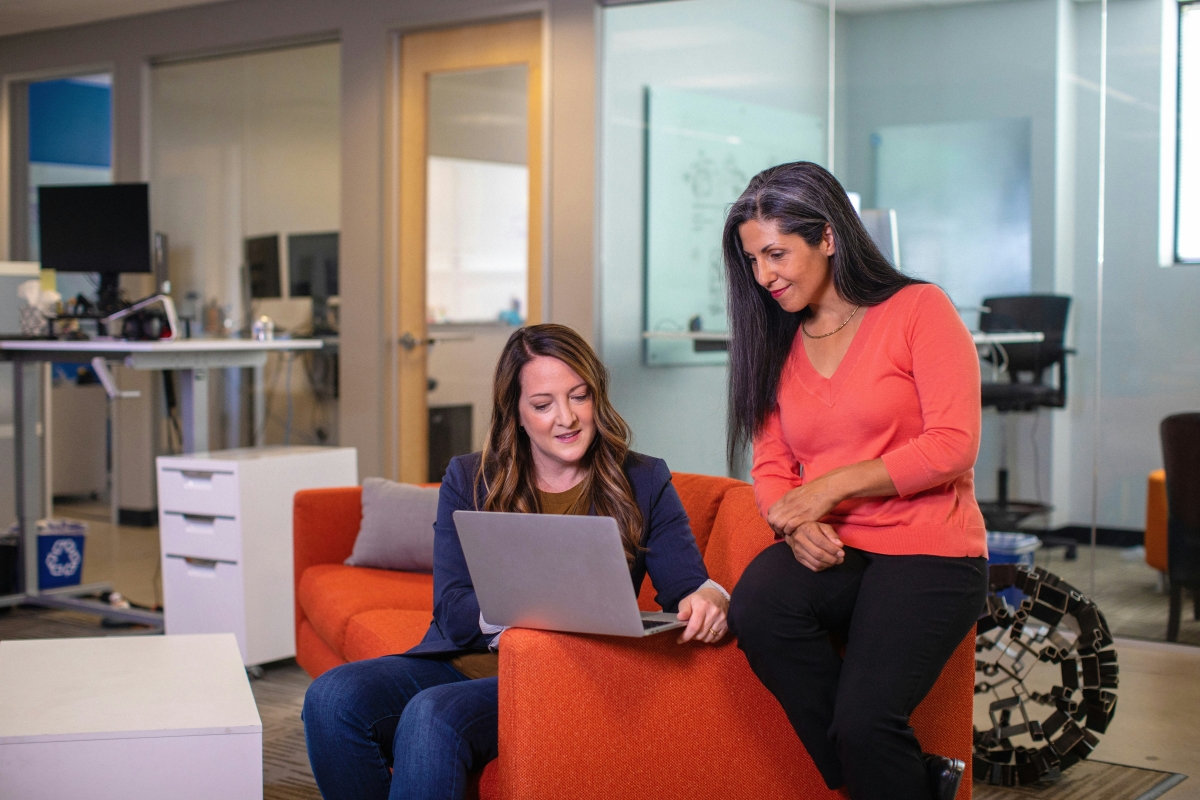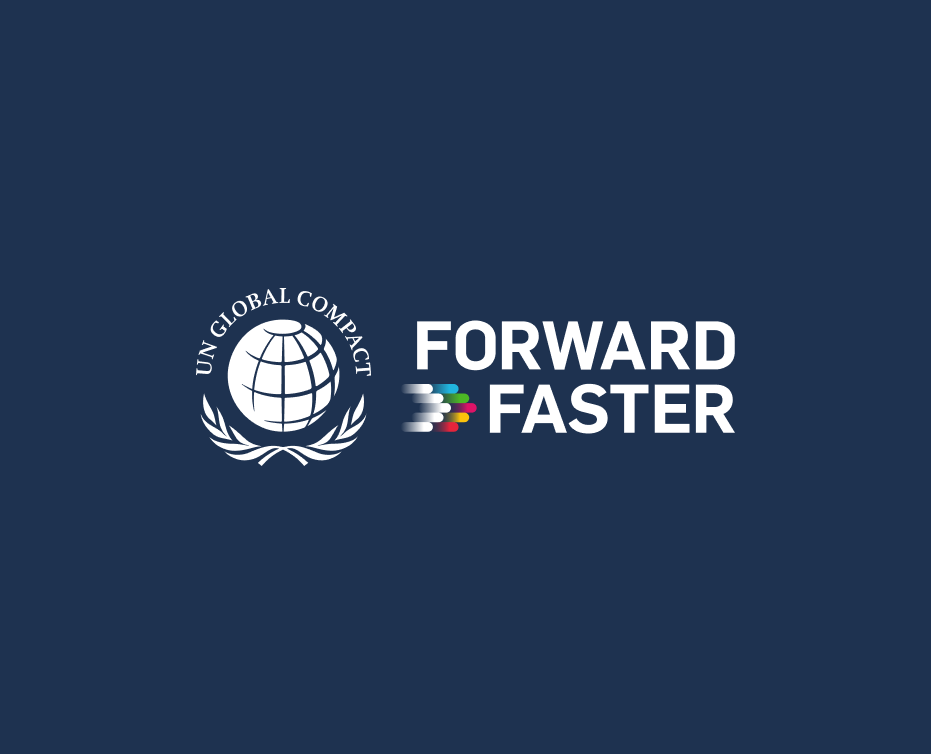Building Inclusive Leadership: Intercorp’s Journey Toward Gender Equality
Start Reading

1. Company at a Glance
This case study examines how Intercorp Peru, a Peruvian holding group, improved female representation within its executive leadership by applying the evolving MOKA Model—centered on four key pillars: mindset, observation, knowledge, and active learning.
Intercorp’s approach extended beyond increasing representation. The company simultaneously focused on fostering an inclusive workplace culture and establishing safe environments with zero tolerance for harassment.
By combining representation efforts with systemic cultural change, Intercorp generated long-term, meaningful progress on gender equality—moving beyond traditional quota-based strategies toward sustainable transformation.
Multi-sector (financial services, retail, education, healthcare, and entertainment)
Industry
1994
Founded
Lima, Perú
Headquarters
101,716 employees
Number of Employees
10 countries (México, Guatemala, El Salvador, Nicaragua, Colombia, Panamá, Chile, Ecuador, Costa Rica and Argentina)
Global Presence
2. The Challenge
Through focus groups and interviews conducted in 2014, Intercorp was able to pinpoint the main barriers preventing women from advancing to higher positions in the Group. The research revealed that motherhood acted as an additional barrier, and that biases and sexism were also present at higher leadership levels. Participants highlighted that limited time—due to personal responsibilities—posed a significant barrier to investing in the development of new professional skills.
In 2017, Intercorp conducted new research through its Innovation Laboratory, “La Victoria Lab,” with the aim of identifying insights into the barriers to female representation in leadership roles, as well as the behaviors that needed to change to foster the advancement of women in leadership roles. This research, known as the 2017 Talent Diversity Project, was carried out across three of the holding’s companies spanning various sectors: Superfood Holding (Grocery Retail), Interbank (Financial Services), and Innova Schools (Education).
Through 30 in-depth interviews, the study identified the need to address three key areas where concrete barriers to women's advancement were found:
The Future of the Work Environment
Barriers: Career paths were linear, paternity/maternity was seen as a career interruption (a setback), and there weren't support networks.
Objectives: Ensure that parenthood does not hinder a mother or a father’s career, and raise the visibility of support networks inside and outside the workplace.
The Future of Advancement
Barriers: Hours dedicated to work were more valued than results and efficiency, there were different rules for different roles (no equal treatment), and some behaviors weren’t seen as harassment.
Objectives: Achieve a flexible, equitable and safe work environment for all employees.
The Future of Leadership
Barriers: There were biases in decision-making and closed leadership groups.
Objectives: Transform human resource management and leadership models to foster cultural diversity and the inclusion of multiple perspectives, especially in top-level decision-making.
3. The Action
A Management Model to Achieve Impact
From the outset, Intercorp acknowledged two key aspects in its approach to non-discrimination and equality:
First, the importance of applying a holistic perspective and involving multiple stakeholders early in the strategy design process.
Second, the understanding that moving forward required treating non-discrimination and equality as a learning journey – an evolution based on a strong, people-centered strategy grounded in psychological safety. The company understood that by fostering an environment where people feel safe to speak up, the organization can continuously learn, adapt, and refine its strategy. This people-centered foundation ensures the approach is not just about compliance, but about building trust and driving lasting cultural change.
The four key components of Intercorp's MOKA Model were key to achieving these aspirations.
Mindset
The first component included working with leaders, mainly CEOs and their management committees, to ensure that each one had an inclusive mindset. To achieve this, the focus turned to awareness and training initiatives such as:
- Annual event: Intercorp organizes an annual virtual event where its topic is centered around non-discrimination and equality. The goal is to share insights from Intercorp’s various companies as well as employee experiences with initiatives they feel have had a real impact on their leaders' mindsets.
- Inclusive Leadership Toolkit: Intercorp has a dedicated learning platform featuring five modules that are specifically designed to help leaders develop an inclusive mindset. The content covers key topics such as unconscious bias, the importance of promoting inclusion, psychological safety, and a zero-tolerance approach to harassment, among others.
Observatory
The Observatory stage focuses on promoting data-driven practices such as the annual data collection process. This process involves Intercorp’s DEI Squad gathering information on various indicators, including maternity and paternity leave, pay equity ratios, career development, and women’s representation at various levels across all companies within the Group. This data-based approach enables Intercorp to identify gaps, monitor progress, and design more effective strategies to promote equity and inclusion.
Knowledge
Intercorp focuses on generating and sharing knowledge to empower tactical units to advance gender equity. Over 10 non-discrimination and equality instructional guides have been developed, including one dedicated to their best practices in gender equity and two focused on the prevention and effective handling of workplace sexual harassment. These resources are designed to build awareness, strengthen leadership capacity, and promote consistent and informed action across companies.
Active Learning
Intercorp focuses on fostering cross-company learning to accelerate progress in diversity, equity, and inclusion. A key part of this effort is the role of DEI Champions: human resources representatives appointed by each company to lead DEI initiatives within their organizations. Some of the initiatives under this component include quarterly workshops and learning sessions usually structured in three parts: They begin with a segment focused on sharing key insights, guidelines, or strategic updates related to Intercorp’s DEI strategy. This is followed by a practical exercise, and concludes with a practice-sharing session led by either an external expert or a representative from one of Intercorp’s companies.
4. Impacts & Results
Intercorp has made significant progress in advancing gender equality using the MOKA Model over time. Some of the results are highlighted below:
An overall increase in women in executive and management positions:
Increase in women’s representation on Boards of Directors: from 4% to 15%.
The percentage of companies providing longer paternity leave rose from 73% in 2022 to 81% in 2024. Companies offering extended maternity leave rose from 50% to 60%.
Inclusive culture was also strengthened, according to answers from the Great Place to Work Survey (71% in the surveys conducted in 2024 compared to 62% in 2023).
In management committees, women’s representation grew from 34% to 36%, while women leaders reporting to these committees went from 41% to 49%.
In terms of training, 84% of companies implemented annual unconscious bias training in 2024, up from 69% in 2022.
96% of Intercorp companies in 2024 claimed to be safe work environments free of harassment and discrimination (Great Place to Work Survey results).
5. Key Lessons Learned
One size does not fit all
Implementing non-discrimination and equality across 30 companies requires tailoring initiatives to each business’s culture, maturity, and context. Flexibility is key to achieving real engagement and results.
Top-down support unlocks momentum
Having sustained sponsorship from executive committees and senior leaders is essential to move gender equality from conversation to action.
Peer networks drive change
Empowering Champions across companies has created a strong cross-company learning community that accelerates adoption and amplifies impact.
Data is a game changer
Regularly measuring gender equality initiatives and workplace dynamics enables informed decision-making, reveals invisible gaps, and strengthens accountability across the Intercorp Group.
“Being part of the Global Compact has reinforced our gender strategy by aligning it with global standards and inspiring us to set bolder goals.”
Zelma Acosta-Rubio, Chief DEI Officer
6. Resources
Intercorp is a participant of the UN Global Compact since 2023, including:
Forward Faster signatory of Gender Equality, Climate Action and Sustainable Finance targets
Participant of the Climate Ambition Accelerator
Recommended UN Global Compact resources available to support your journey:
Disclaimer: This case example is intended strictly for learning purposes and does not constitute an endorsement of the individual companies by the UN Global Compact.



